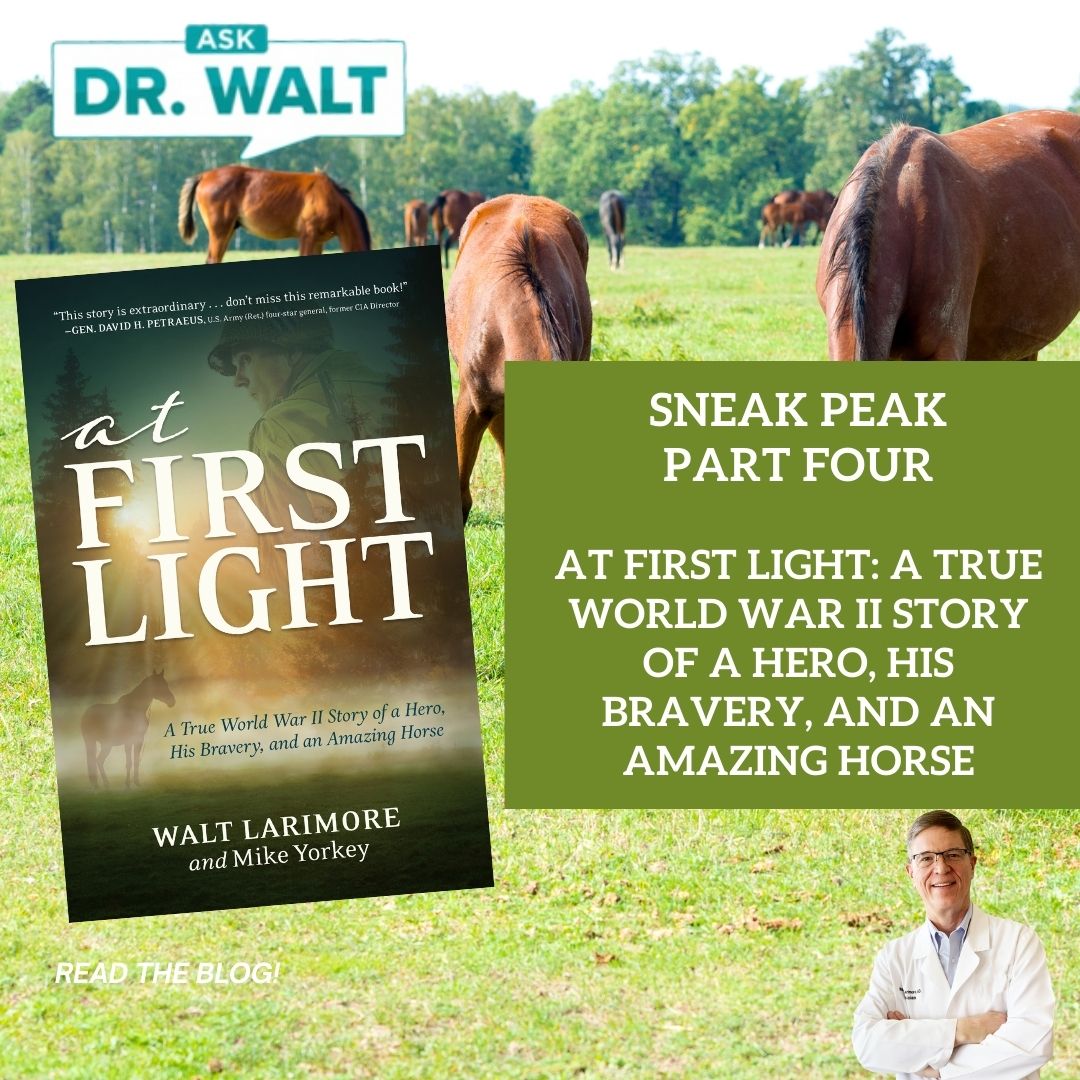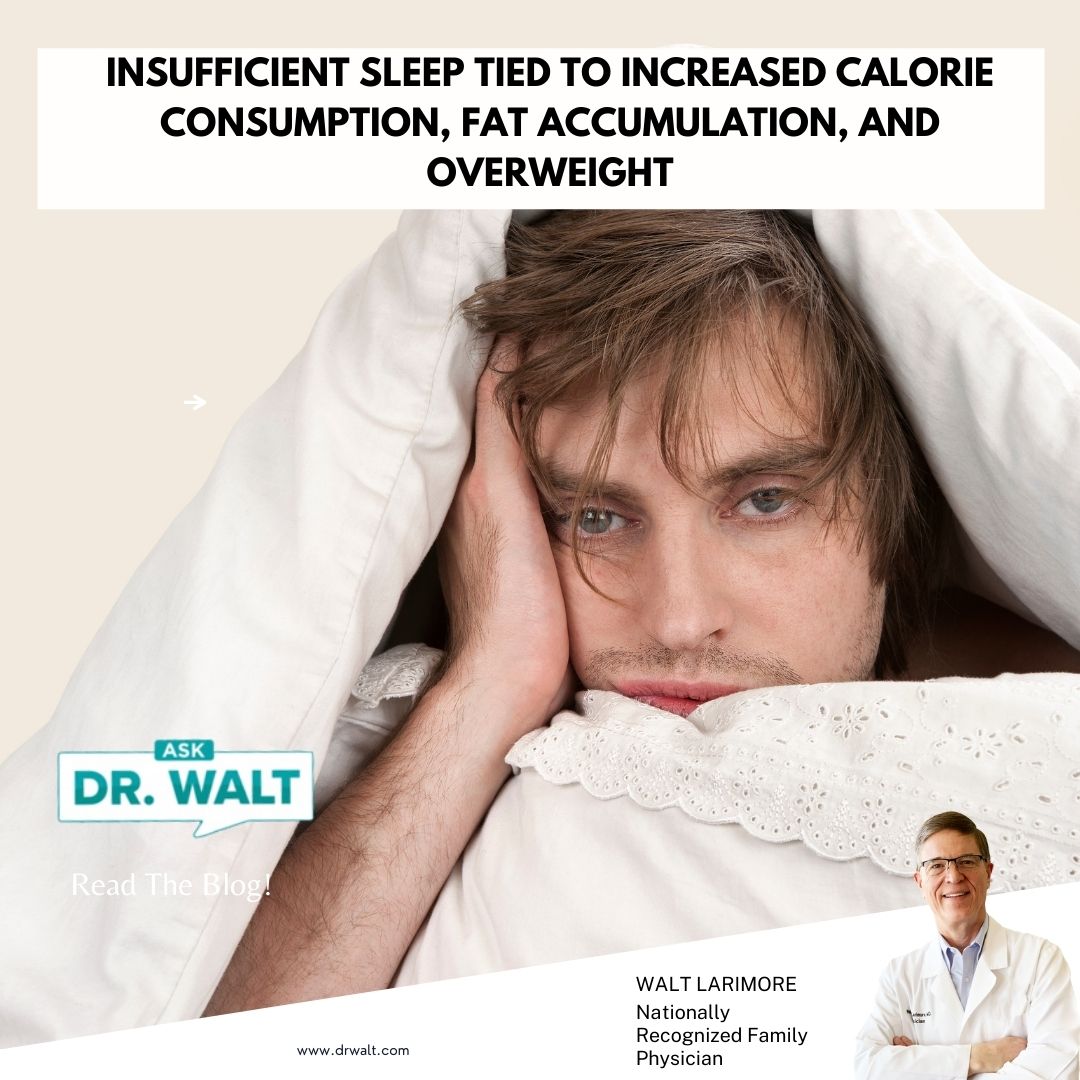
SNEAK PEAK – Part Four – At First Light: A True World War II Story of a Hero, His Bravery, and an Amazing Horse
April 23, 2022
Insufficient sleep tied to increased calorie consumption, fat accumulation, and overweight
April 26, 2022Barb, my wife, was sharing coffee with some of the Jazzercize ladies. One said she had to stop coffee because she had read on the Internet that it causes bone thinning (osteopenia or osteoporosis). Barb asked me if that was true.
I didn’t think so, but I searched on some very reputable sites to find the truth. I thought you might be interested:
From the National Osteoporosis Foundation:
Does caffeine rob the body of calcium? If so, how much is harmful? Caffeine appears to decrease calcium absorption by a small amount. Drinking more than three cups of coffee every day may be harmful to bone health. If you enjoy drinking coffee and tea, you can help to make up for any calcium loss by getting enough calcium to meet your body’s needs. (https://www.bonehealthandosteoporosis.org/patients/patient-support/faq/)
The majority of the research concludes that caffeine does not have a negative effect on calcium absorption. It is, however, acknowledged that there may be a slight effect for heavy coffee drinkers that take in upwards of four cups of coffee per day, but even this effect would be counteracted by one or two tablespoons of milk. If you have a good calcium and vitamin D intake, there is little reason for concern about moderate caffeine intake on your bones (e.g., up to 6 cups of coffee or tea). (https://americanbonehealth.org/nutrition/is-coffee-bad-for-bones/?highlight=caffeine)
Coffee can be Good for Your Bones, Study Says. A recent study looked at coffee and its relationship to bone health. The study, which looked at data on 564 people, found people who habitually drank coffee had higher bone mass density than non-coffee drinkers. The bottom line is, if you’re a coffee drinker, you shouldn’t be worried about its impact on your bone health. (https://newsroom.clevelandclinic.org/2020/02/07/coffee-can-be-good-for-your-bones-study-says/)
Can drinking coffee weaken bones? Drinking caffeinated coffee can increase calcium loss and reduce calcium absorption, but this is unlikely to significantly impact bone health provided calcium intake is adequate. In fact, some experts have estimated that adding only 1 to 2 tablespoons of milk to a cup of coffee would be sufficient to counterbalance the small amount of coffee-induced calcium loss. Most observational research has shown that moderate intake of coffee (up to about four 8-ounce cups per day) is not associated with increased risk of osteoporosis or fracture in healthy adults, particularly in those with adequate calcium intake. The Bottom Line: Drinking caffeinated coffee can increase calcium loss and reduce calcium absorption, but this seems unlikely to significantly impact bone health provided calcium intake is adequate. (https://www.consumerlab.com/answers/can-drinking-coffee-weaken-bones-or-worsen-arthritis/coffee-bone-health-arthritis/)
Is caffeine consumption a risk factor for osteoporosis? These data suggest that caffeine intake in the range consumed by a representative sample of white women is not an important risk factor for osteoporosis. (https://mayoclinic.pure.elsevier.com/en/publications/is-caffeine-consumption-a-risk-factor-for-osteoporosis)
Caffeine can increase urinary excretion of calcium. However, moderate caffeine intake, less than 400 mg a day, does not seem to significantly increase osteoporosis risk in most postmenopausal women with normal calcium intake.(https://naturalmedicines.therapeuticresearch.com/databases/food,-herbs-supplements/professional.aspx?productid=979#adverseEvents )
According to a review by Health Canada, and a subsequent large meta-analysis conducted in the US, healthy adults with adequate calcium intake are not at increased risk for decreased BMD, osteoporosis, or fractures with daily caffeine intakes up to 400 mg.
Good news: The case for coffee is stronger than ever. Study after study indicates you could be getting more from your favorite morning beverage than you thought: Coffee is chock full of substances that may help guard against conditions more common in women, including Alzheimer’s disease and heart disease.
- You could live longer.
- Your body may process glucose (or sugar) better.
- You’re less likely to develop heart failure.
- You are less likely to develop Parkinson’s disease.
- Your liver will thank you.
- Your DNA will be stronger.
- Your odds of getting colon cancer will go way down.
- You may decrease your risk of getting Alzheimer’s disease.
- You’re not as likely to suffer a stroke.
© Copyright WLL, INC. 2022. This blog provides healthcare tips and advice that you can trust about a wide variety of general health information only and is not intended to be a substitute for professional medical advice, diagnosis, or treatment from your regular physician. If you are concerned about your health, take what you learn from this blog and meet with your personal doctor to discuss your concerns.



